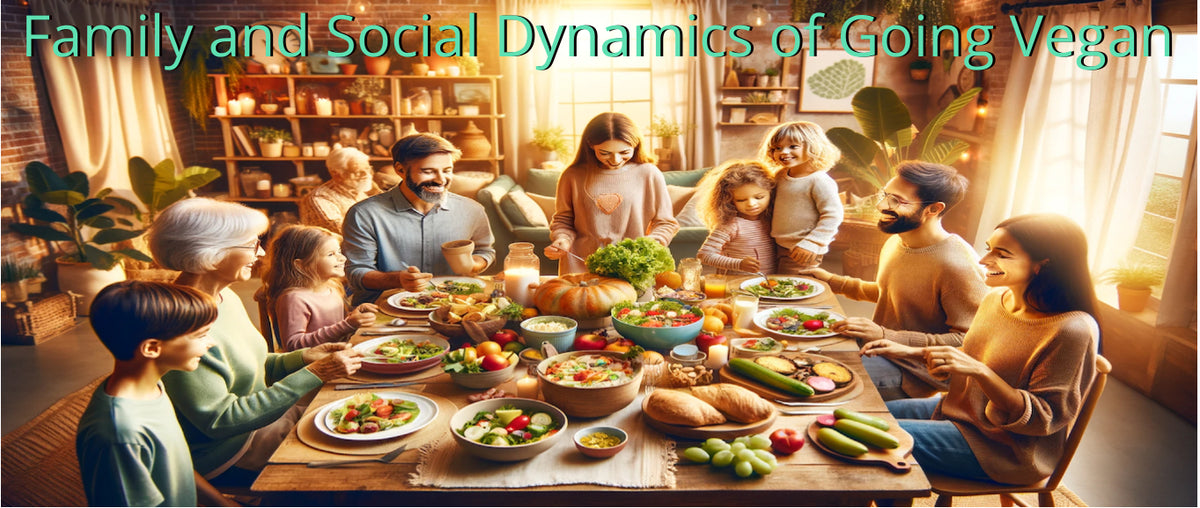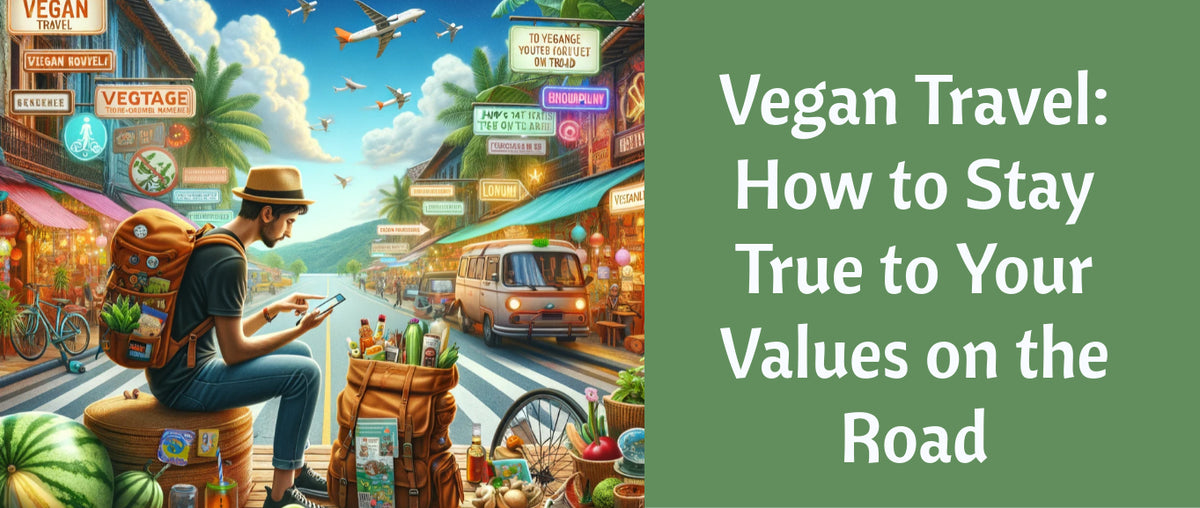Family and Social Dynamics of Going Vegan
The journey to veganism often begins at home. In many cases, family members play a pivotal role in influencing one's dietary choices. Statistical insights reveal that a significant number of individuals turn to veganism inspired by their family members. This trend underscores the importance of Family and Social Dynamics of Going Vegan in shaping food practices and preferences.
- 80.1% of vegans report having family or friends who are vegan, showcasing a strong social network influence.
- Family relations act as both barriers and pathways to veganism, indicating the complex role family plays in dietary transitions.
Challenges and Opportunities within Family Dynamics
Adopting a vegan lifestyle within a family setting presents both challenges and opportunities. One of the main hurdles is the need to navigate differing dietary preferences. It's not uncommon for families to have members with varied dietary needs and choices, including veganism, vegetarianism, and vegan diet.
- Cooking separate meals can lead to conflict but can also be an opportunity for creativity and inclusion.
- Vegan meals adaptable to other diets can minimize conflict, promoting a sense of unity and respect for individual choices.

Emotional and Social Impacts of Veganism
Emotional Adjustments and Identity
The shift to veganism is not just a dietary change but an emotional journey. Many vegans undergo a profound emotional adjustment, often feeling empathy and sadness for the suffering of animals. This emotional aspect plays a significant role in shaping their vegan identity and how they interact socially.
- Empathy for animal suffering is a common emotional response among vegans.
- Veganism as a part of social identity can influence one's interactions and self-perception.
Navigating Social Situations as a Vegan
Vegans often find themselves in challenging social situations, especially during gatherings or events where vegan options are limited. These experiences can lead to feelings of isolation or being misunderstood. However, they also provide opportunities for vegans to communicate their choices and educate others.
- Challenges in social gatherings include limited food options and misunderstanding from others.
- Maintaining social connections is crucial for vegans, requiring tact and sometimes compromise.
Also Read
Understanding Diverse Motivations Behind Veganism
Ethical, Health, and Environmental Motivations
The reasons behind choosing a vegan lifestyle are as diverse as the individuals who embrace it. While some are driven by ethical concerns for animal welfare, others are motivated by health benefits or environmental reasons.
- Ethical considerations include animal welfare and opposing animal cruelty.
- Health benefits such as improved heart health and lower risk of certain diseases often attract individuals to veganism.
- Environmental impact, including reducing carbon footprint and conserving water, is another compelling reason for many.
These varying motivations not only influence the decision to become vegan but also impact the longevity and commitment to this lifestyle.
Veganism as a Lifestyle or Ethical Choice
Within the vegan community, there are varying perspectives on what being vegan means. Some view it as a lifestyle choice focused on health benefits, while others see it as an ethical commitment centered around animal rights.
- Differences within the vegan community can sometimes lead to internal conflicts.
- Health-focused vegans may prioritize dietary benefits, while ethical vegans focus on animal welfare and environmental concerns.
This diversity in motivation can lead to different practices and a sense of identity within the vegan community.

Practical Tips for Vegans in Family and Social Settings
Culinary Tips for Mixed-Diet Families
For families with mixed dietary preferences, meal times can be a challenge. However, with some creativity and planning, it's possible to cater to everyone's needs without much hassle.
- Preparing meals that everyone can enjoy involves finding common ground in food choices.
- Adaptable vegan recipes can be modified to suit non-vegan family members, making meal preparation simpler and more inclusive.
Managing Social Dynamics
Navigating social dynamics as a vegan requires understanding, patience, and sometimes a bit of strategy. It's important to communicate one's choices clearly while respecting others' dietary preferences.
- Discussing veganism with empathy and respect helps in reducing misunderstandings.
- Navigating dining out and events includes planning ahead and communicating dietary preferences to hosts or vegan restaurants.
Conclusion
Embracing veganism is much more than a dietary choice; it's a lifestyle that encompasses ethical, health, and environmental considerations. The transition to veganism often involves a significant shift in family and social dynamics. Understanding the diverse motivations behind veganism and implementing practical tips can make this journey smoother for both the individual and their surrounding community. Veganism presents an opportunity for personal growth, healthier living, and contributing positively to the planet. By fostering empathy, patience, and open communication, vegans can navigate their social landscapes effectively, maintaining strong relationships while staying true to their values.
Do you enjoy vegan food? We have a list of vegan restaurants in India to help you find delicious options in your area!










